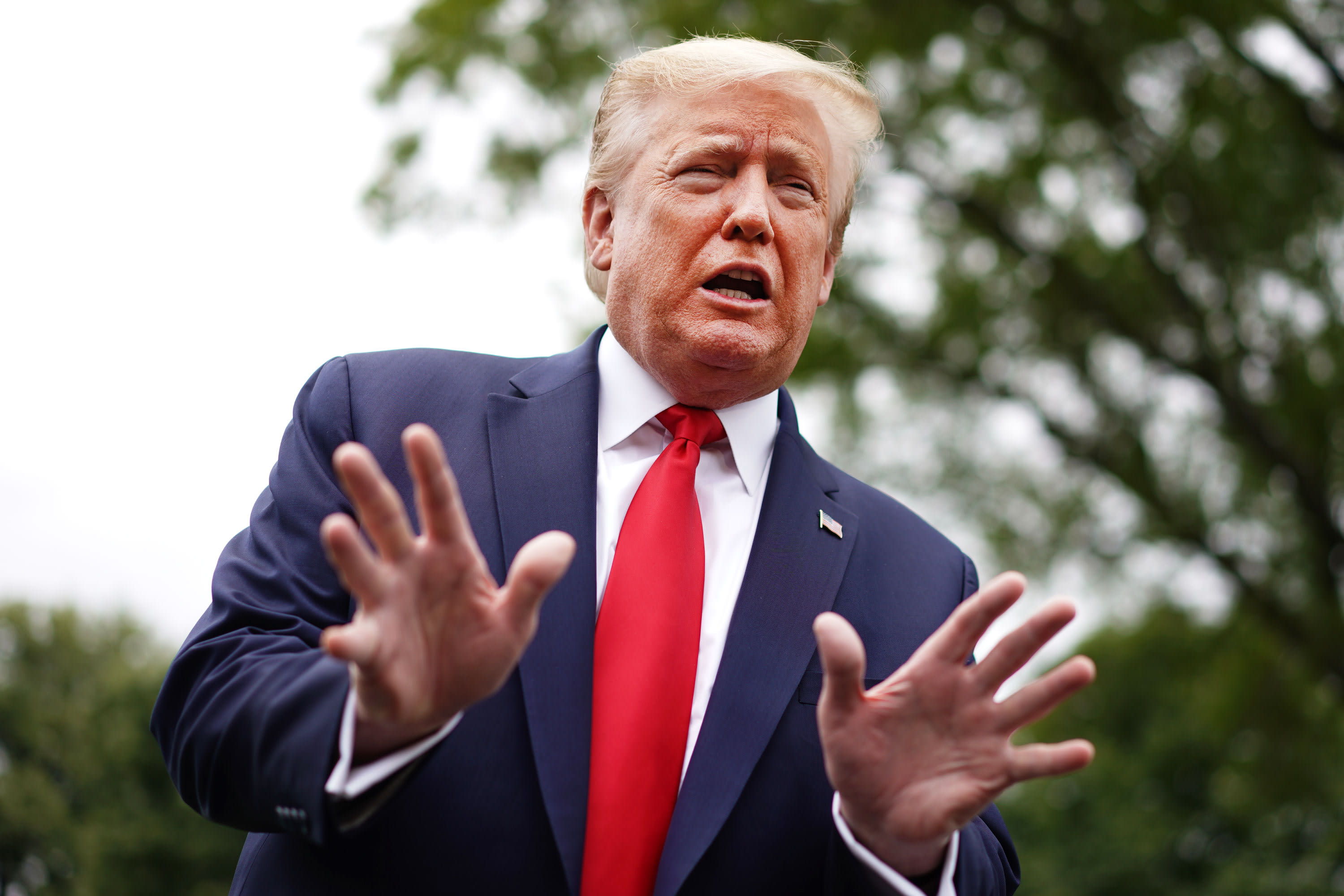US President Donald Trump speaks to the press as he departs the White House in Washington, DC, on May 21, 2020.
Mandel Ngan | AFP | Getty Images
President Donald Trump and his advisors showed more support for a new round of coronavirus relief spending this week as economic damage from the pandemic mounts.
The president on Thursday said, “I think we’re going to be helping people out” and “getting some money for them” as tens of millions of Americans lose paychecks and businesses struggle to survive with public health restrictions still in place in much of the country. He added that the U.S. could take “one more nice shot” at stimulus.
Trump’s advisors have echoed his sentiment. On Friday morning, economic advisor Kevin Hassett told CNN that another round of aid is “pretty likely,” saying he believes “it’s coming sooner rather than later.”
Treasury Secretary Steven Mnuchin said Thursday that he sees a “strong likelihood” the U.S. will need more stimulus.
Support has mounted in the White House as Congress fails to strike a consensus on how to lift a U.S. economy collapsing under the weight of the pandemic. More than 38 million people have filed jobless claims since the crisis started, and second-quarter GDP is expected to plunge.
Democrats have pushed for an immediate, sweeping plan to push more spending money to individuals, expand the social safety net during the crisis and make voting safer by expanding mail-in ballot access. The House passed a $3 trillion relief package last week.
After downplaying the need for more federal spending, the GOP-held Senate has started to open the door to a more narrow aid proposal. Senate Majority Leader Mitch McConnell told Trump this week that the next bill should not cost more than $1 trillion, according to Axios. The president has generally showed more comfort with free spending than his Republican allies in Congress.
Policymakers will, of course, have to pin down a lot of details. Democrats have pushed for a second stimulus check to individuals of up to $1,200, and Trump appears to have embraced the idea. Congressional Republicans already backed direct payments once in March.
But several other issues could prove thorny. While Democrats want to extend the $600 per week enhanced federal unemployment insurance benefit by six months, McConnell has said he opposes authorizing it beyond its July expiration.
Democrats want nearly $1 trillion to help state and local governments cover increased costs and lost revenue due to the pandemic — a total the GOP will not embrace. Trump has also showed some reluctance to send more aid to states and municipalities.
Meanwhile, Republicans want to pass liability protections for doctors and businesses as the country reopens. Democrats do not want to create a broad shield from lawsuits. White House officials have embraced the provision along with the GOP members of Congress.
Formal legislation talks between the Trump administration and Congress have stalled for now.
The House will be in session for part of next week. It plans to pass a bipartisan bill that aims to encourage small businesses to rehire workers by easing restrictions on how they can use government aid and receive loan forgiveness.
The Senate plans to next convene on June 1.

